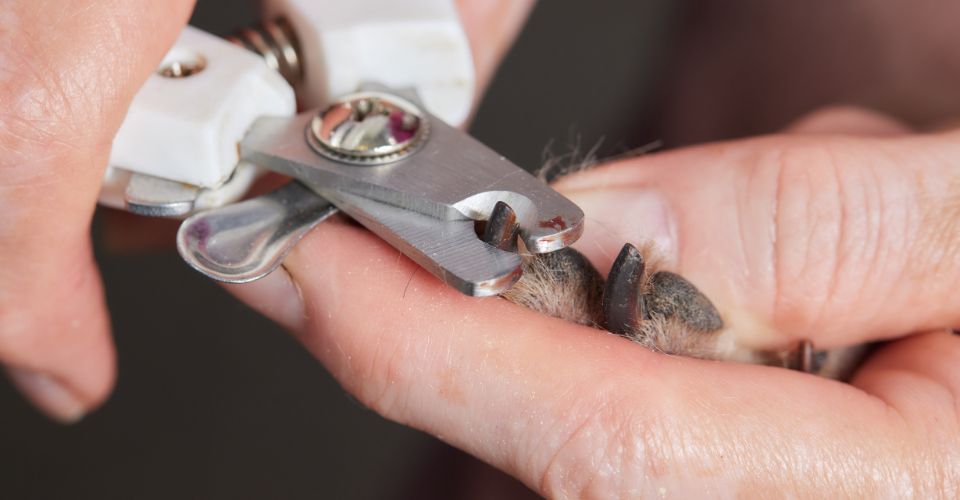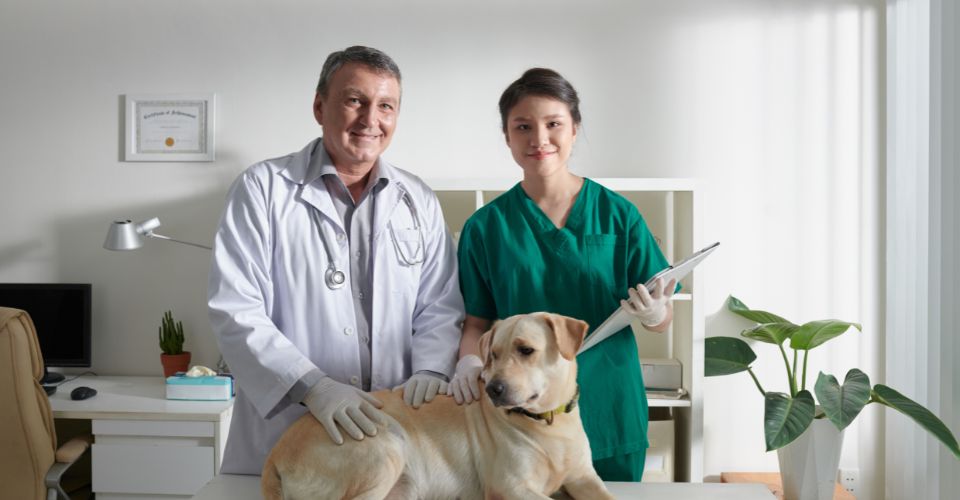Broccoli is an essential dinner item among many families throughout the world. It does not only have a delicious taste, but broccoli contains several beneficial nutrients as well. It is no hidden fact that dogs love to munch on whatever we bring to our dining tables, be it chicken, brussels sprouts, fruits like pomegranates, or broccoli. However, the question that arises with such situations is that can dogs eat all human food without risking their health? What about broccoli?
Can Dogs Eat Broccoli?
Yes, dogs can absolutely eat broccoli. The green veggie is not only healthy for humans, but dogs can also gain the benefits if included in their diet.
Every food has different nutrients, benefits, and disadvantages, so it is important to thoroughly research or consult with a vet before feeding your pets anything they have not consumed before. Let’s understand the benefits and precautions associated with dogs eating broccoli.
The Benefits of Broccoli for Dogs
As mentioned earlier, broccoli has a variety of minerals and vitamins, including vitamins C, A, K. Many people are not aware of the benefits these minerals and vitamins can have for dogs. Before we dig any further, let’s get a brief overview of the advantages of these nutrients and why they are essential for dogs to consume.
| Nutrients | Why Is It Important? |
| Vitamin A (60 mcg) | Supports healthy eyes and skin. Maintains active nerve function and strong muscles |
| Vitamin C (56.5mg) | Helps in improving the immune system |
| Vitamin K (116 mcg) | Makes bones stronger and help in proper blood clotting |
| Calcium (59mg) | Essential for bones, teeth, and muscles. Helps with hormones and nerve function as well |
| Fiber (3.5g) | Maintains bowels movements, helps in lowering cholesterol levels, and controls blood sugar level |
| Manganese (0.194 mg) | Help in maintaining healthy bones and better metabolism. It is also essential for calcium absorption, balancing sex hormones, and normalizing brain and nerve function |
| Folate (57mcg) | Aids in amino acid metabolism |
Broccoli Is Healthy for Dogs But…
Dogs are omnivores, which means they receive the same benefits from fruits and vegetables that humans get. However, quantity plays a vital role in such cases. For example, as mentioned earlier, broccoli contains various beneficial minerals and vitamins, but there is one ingredient in the florets called isothiocyanate that can be harmful to dogs if consumed in an immoderate amount.
Consuming too much broccoli can cause abdominal pain and digestive issues in dogs. Remember that isothiocyanate is also present in other vegetables, such as cauliflower, kale, cabbage, and Brussels sprouts. However, broccoli is comparatively rich in isothiocyanate.
Isothiocyanate is very beneficial to plants because it protects them from insects and bacterial infections, but it does not necessarily mean that dogs can consume it in a larger amount.
According to research and professional vets, dogs can take 10 percent of their calories from fruits and vegetables, and the rest should come from their staple diet. If the amount exceeds 10 percent, it may cause health complications. Consuming more than 25 percent from such sources can be fatal for dogs.
Broccoli for Puppies
Every dog is different. Your dog might not like to eat what your neighbor’s dog has a penchant for. It is advised that you start with a small amount of broccoli and observe if your dog shows any negative reactions to it. If not, you are good to go. Just remember the 10 percent rule.
Similarly, puppies have different nutrition requirements than adult dogs. They need a diet that can help with their bone growth and build a healthy immune system. It is best to avoid feeding broccoli to puppies until they are fully grown—puppies can easily overeat, which may cause the same gastrointestinal issues as adult dogs.
Many dog owners worldwide feed broccoli stem to puppies, believing that it would aid in teething. This is not true, however. Broccoli stem should not be used as a chew toy as the fiber content present in it may be too harsh for your puppy to digest. Consuming large chunks of the stem can cause intestinal blockage.
How to Feed Broccoli to Dogs?
Broccoli can be served in many different ways. You must have noticed that the broccoli’s floret is hard to chew. Despite having sharp teeth and a strong jaw, dogs can have difficulty chewing the raw broccoli floret. Even though raw broccoli is absolutely safe, it is advised that you cook it in some way—boil or steam it—before feeding it to your dog.
Similarly, avoid cooking broccoli in oil, salt, or spices as it can be harmful to the dog. Additionally, you can make a puree of the vegetable and spread it on the kibbles of your dog’s food.
Cooked broccoli won’t be hard on your pooch’s digestive system, and he would be able to absorb all the essential nutrients from it.
What to Avoid…
As mentioned earlier, you must follow the 10 percent rule while adding broccoli to your dog’s diet. The rule says that only 10% of dogs’ diet can come from fruits, vegetables, or other treats. Anything exceeding the required amount would cause health complications. Similarly, it is highly advised that you avoid adding broccoli to your dog’s diet too often. An excessive amount of broccoli may cause gastrointestinal complications and bad gas.
Read: Can Dogs Eat Avocados?
Big Chunks!
Even if you are feeding the vegetable raw, make sure you chop it into smaller pieces beforehand. Dogs can have a hard time chewing on big chunks of broccoli, or they may even choke on it. Keeping your dog’s size and age in mind while making bite-able pieces will prevent any choking hazard or tract blockage.
Not All Dogs Are the Same…
Not all dogs are same. Every dog reacts differently to different food items. If you have not fed broccoli to your dog before, start by giving him minuscule pieces and check if he shows any negative reactions to it. Look out for vomiting, diarrhea, gas, or other signs of gut irritation.
If your pooch does not show any of the mentioned signs, he is fortunate enough to munch on the delicious veggie for the rest of his life—keep in mind the 10 percent rule, however!
Feeding Guidelines
| The Perfect Portion | 10 lbs. dogs: Up to 1 small floret, cut into small pieces 30 lbs. dogs: 1 – 2 small florets, cut into small pieces 70 lbs. dogs: 3 – 4 small florets, cut into small pieces |
What Other Greens Can I Feed My Dog?
Apart from broccoli, there are a variety of other greens that you can feed your dog. These vegetables are absolutely safe and super healthy but keep in mind that quantity matters the most. Do not overfeed your pup with the greens.
- Brussels Sprouts: Packed with nutrients and antioxidants.
- Spinach: Contains high amounts of vitamins A, B, C, and K, Iron, antioxidants, beta-carotene, and roughage.
- Celery: Consists of Vitamins A, B, and C that supports healthy heart for dogs.
- Cucumber: Suitable for dogs suffering from obesity as the vegetable contain little to no carbs or fats. It is loaded with K, C, and B1 vitamins.
- Peas: Full of vitamins, minerals, protein, and fiber.
- Green Beans: Low in calories and full of fiber, green beans can be a great treat for dogs—full of vitamins.
- Zucchini: Contains vitamins A, C, B6, minerals, such as potassium, zinc, manganese, magnesium, copper, and phosphorus, and fibers.
Conclusion
As thoroughly discussed earlier, dogs can absolutely munch on the delicious broccoli. There are many health benefits in this vegetable if given in a moderate amount. However, sometimes a little research on the internet might not be enough; Keeping Pet recommends consulting with your local vet before feeding anything new to your pet.





